Peter Sagan: I love winning but most of all I just want to have fun
World champion goes for green at the Tour de France
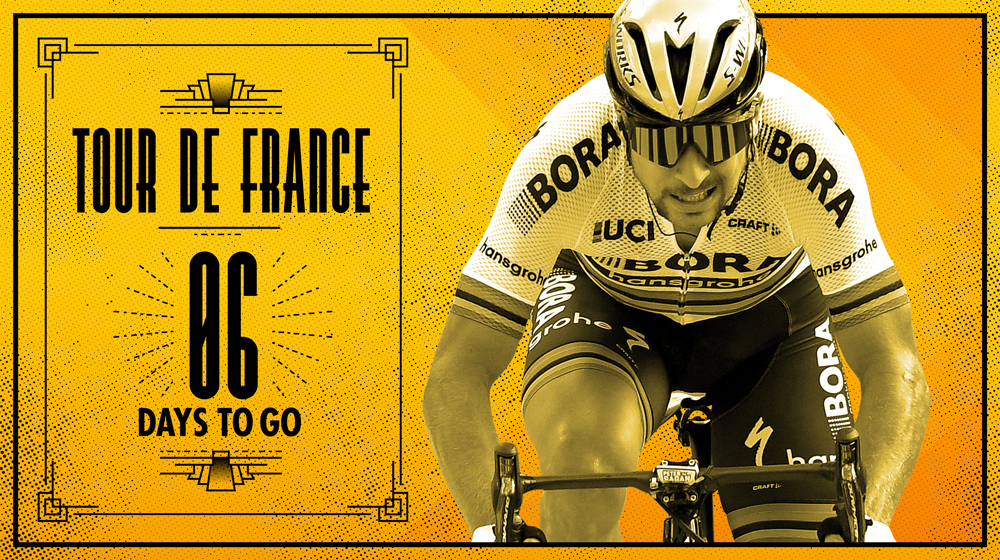
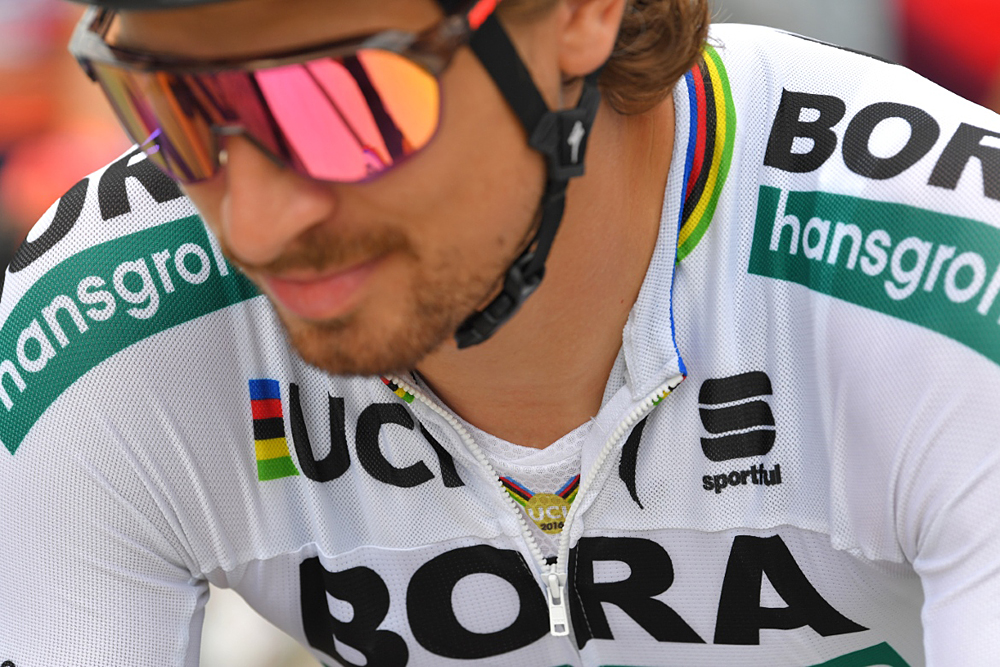
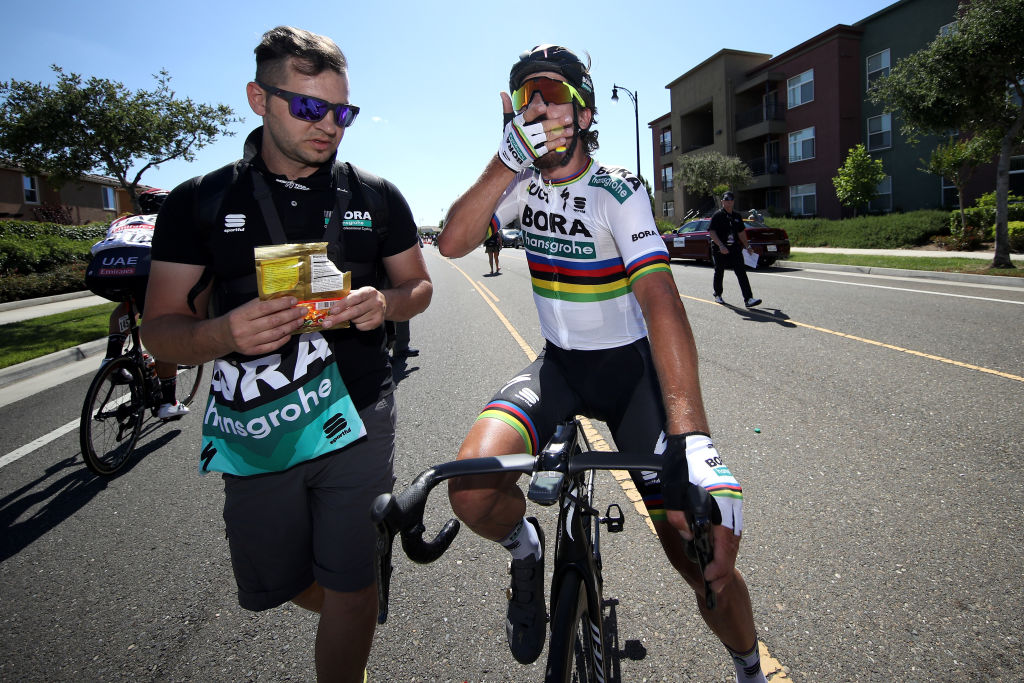
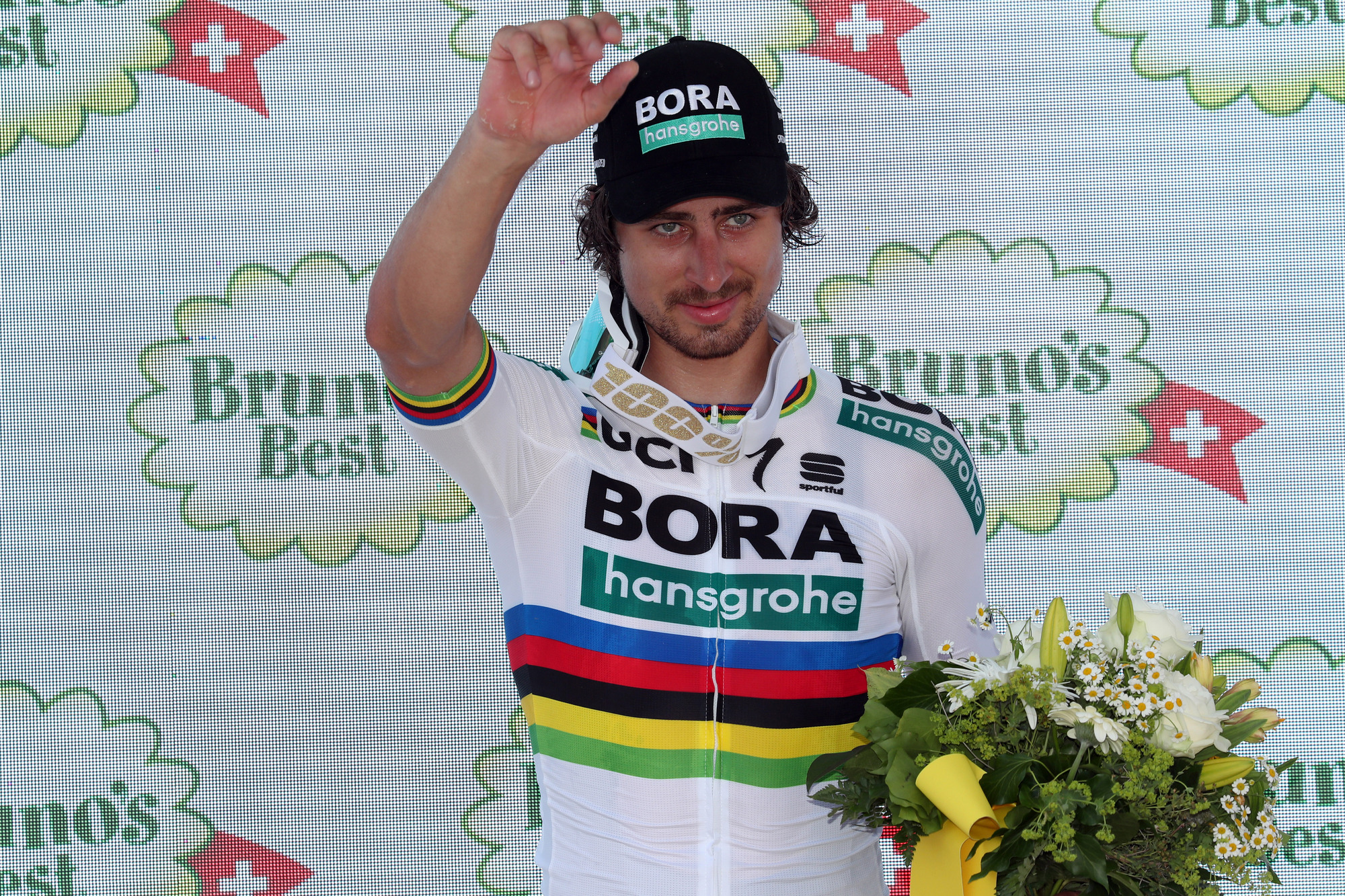
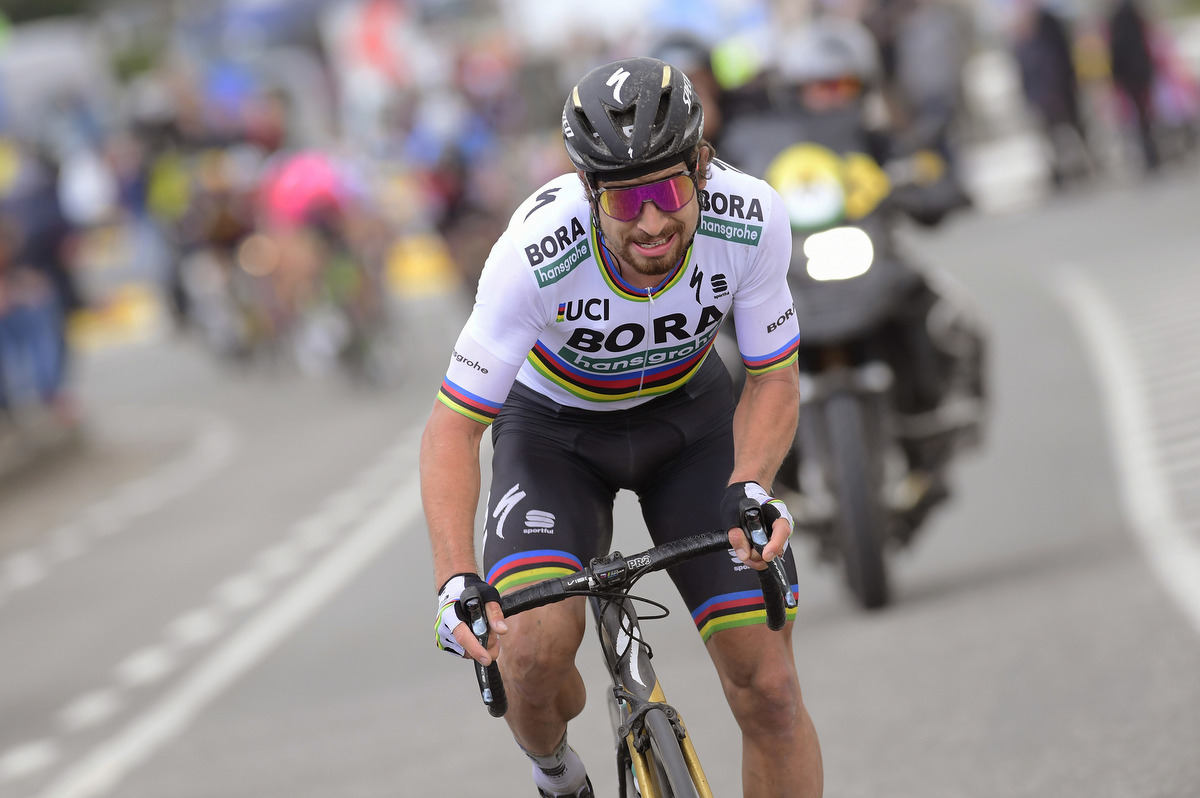
Peter Sagan will rock up for the Tour de France Grand Depart on Wednesday ready to race, just as he has every July since 2012.
He has dismissed the need for any stage reconnaissance, he probably doesn't yet know where most of the stages finish, and like most of us, he struggles to understand the complex points system for the green jersey. Yet he will no doubt be up there in the expected first sprint finish in Fontaney-Le-Comte next Saturday, chasing the first yellow jersey of the Tour and the haul of points that comes with every stage finish.
The three-time world champion is targeting a record-equalling sixth green points jersey at this year's Tour de France but it could be his toughest fight yet. Racing and winning seems to come easy for the Slovakian but this year he faces a serious threat from Fernando Gaviria. 2017 green jersey wearer Michael Matthews and possibly every other sprinter in the Tour de France peloton will all arrive in the Vendee on Wednesday convinced of their chances. True sprinters never risk their necks to finish second.
Sagan is perhaps aware of the heightened competition and the expectation he will win a sixth green jersey but does not show it, sticking to his now familiar laissez-faire attitude in an exclusive interview with Cyclingnews.
"I love winning but sometimes you win, sometimes you lose. That's life, that's sport. I just want to do my best, most of all I just want to have fun. That's it," Sagan says, often dropping in his deep raucous laugh during the interview.
"I'm not a pure sprinter to go up against Kittel, Cavendish or the others but I can win different kinds of stages as well as sprint stages and win in a different way. I think I can always be in the front, always be in the top five. I've done that every year..."
Sagan is not a numbers nerd but knows he has spent much of his six Tour de France in the green jersey; it seems to be his favourite colour after the rainbow bands. Eighty of his first 100 days riding the roads of France were spent in the green jersey. Sagan has 'only' won eight stages but has a superb rate of points scoring consistency, a skill that is vital to win the green jersey at the Tour de France.
Get The Leadout Newsletter
The latest race content, interviews, features, reviews and expert buying guides, direct to your inbox!
According to Eurosport, Sagan has dominated the points classification each time he has won it, with totals of 421, 409, 431, 432 and 470 points. That was far more than Mark Cavendish's total of 334 points in 2011 and Matthew's total of 370 points last year.
Tour de France organisers have often tweaked the points awarded on each stage to open up the competition and perhaps even make it harder for Sagan to win.
This year the points available vary depending on the type of stage, with eight flat stages awarding a scale 50-30-20-18-16-14-12-10-8-7-6-5-4-3-2 points. The stage 6 finish on the Mur de Bretagne and the cobbled ninth stage to Roubaix only offer 30 points to the winner and then 25-22-19-17-15-13-11-9-7- 6-5-4-3-2 for the other placings.
The winner of the mountain stages scores just 20 points so that the points jersey is tipped in the way of the sprinters. The sprinters can also chase other points at the daily intermediate sprint, often positioned early in the stage, with 20-17-15-13-11-10-9-87-6-5-4-3-2-1 points awarded.
ASO has introduced a new time bonus sprint late in each of the opening nine road stages - this sprint does not reward points for the green jersey competition but carries time bonuses of 3, 2 and 1 seconds.
Sagan's sprinting skills allows him to win consistently in each of those opportunities. He hoovers up points when there is a day for the pure sprinters, his Classics class and climbing skills are better than all of his sprint rivals, allowing him to collect further points hauls while others finish in the gruppetto. Sagan is also not afraid to go in the early breakaway on transfer stages to pick up mid-stage intermediate sprints, either. He does it all while seeming to enjoy racing, which is devastating to his rivals' morale.
The past is in the past, the silver lining of the 2017 disqualification
Only Sagan's disqualification and expulsion from last year's race after a bump of elbows with Mark Cavendish in the stage 4 sprint led to a dramatic crash for the Manxman. The judges ruled that Sagan had caused the wreck and kicked him off the race, ending his fight for a sixth green jersey. It was one of the most controversial moments of the whole race.
Sagan described the judges' decision as a mistake before heading home. The Court of Arbitration for Sport dismissed an appeal by Bora-Hansgrohe to put him back in the race but the German team eventually ended a legal challenge against the UCI when the governing body accepted that the crash of Cavendish was an "unintentional race incident". The polemics and other incidents have lead to the introduction of cycling's equivalent of the Video Assist Referee, with a race commissaire now monitoring the race via television and even social media to help speed up any disciplinary decisions.
"The past is in the past, what happens, happens," Sagan tells Cyclingnews when asked about the incident. He is not keen to turn back the clock, preferring to enjoy the silver lining sparked by his disqualification. He won five races after being ejected from the Tour de France, including a third world road race title in Bergen, cancelling any sense of regret.
"After missing most of the Tour de France I came back fresher and stronger and I won some good races," he points out.
"I had the best holiday of my life last July. I went on a boat with family and friends."
This season Sagan has won less, adding five wins to his career palmares of 106 victories. However, those five include Gent-Wevelgem and Paris-Roubaix. He showed off his sprinting ability by beating Elia Viviani and Arnaud Demare in Belgium and then rode away from his rivals to catch and then beat Silvan Dillier in the Roubaix velodrome. The way Sagan won both races silenced those doubting ability to win the biggest races and quashed any suggestion that he was somehow wasting his huge talent.
Sagan again spent a chunk of time in the USA after the Classics, riding the Tour of California and training at altitude in Utah. Rest days usually included a spin on a mountain bike or some stunts posted on social media. Despite having a young son at home in Monaco, and despite making winning look easy, Sagan still does the hard miles.
He rode the Tour de Suisse as a final preparation for the Tour, finishing off the work done in Utah. He beat Gaviria to win stage 2, was beaten by Sonny Colbrelli and Gaviria on stage 3, was fourth on stage 4 and fourth in the final sprint in Bellinzona behind Demare, Gaviria and Kristoff.
The consistency was there, he just lacked a little extra form. That was honed in the last two weeks following the carefully prepared 3-1-2 programmes - three days training, a rest day, then two days of training - prepared by trusted directeur sportif and coach Patxi Vila.
"I'm trying to not be in shape too soon, so I can be in good shape a little later," Sagan explains to Cyclingnews.
"The Tour de France is a little later this year, so everything has to be moved a little later. I hope my peak form will follow the calendar. Every season is different, every season is new. The Tour is pretty long you know… We have to be concentrated and strong from start to finish and the finish is at the end of July."
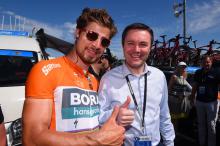
New sprints, new rivals but Sagan remains blue chip
Each new season brings new rivals to Sagan's green jersey crown but nobody has managed to topple him in a fair fight.
Sagan is 28 and at his peak, while some of his previous rivals have aged and slowed down. Others are improving and will be more of a threat this year, in both the sprints and for the green jersey but lack vital experience for a three-week fight for points. Sprint success at the Tour de France is like the stock market: it can be volatile and unforgiving. Sagan is arguably blue chip, his value growing constantly.
Fernando Gaviria (Quick-Step Floors) is without a doubt the rising star and arguably the biggest threat to Sagan's hopes of a sixth green jersey this year. However, like the maillot vert, the Colombian is very green and has made some rookie errors in sprints just 24 hours after winning in a spectacular fashion.
Gaviria won four stages and the points jersey at last year's Giro d'Italia and can count on the hugely successful Quick-Step Floors team. Importantly, like Sagan, he also has the ability to handle some climbs and still have the speed to win. He could string together a series of stage victories and points hauls, testing Sagan like never before but questions remain about whether he can do it for three weeks.
Last year Michael Matthews was the winner of the green jersey in Sagan's absence, taking three stage victories. He will share leadership at Team Sunweb with Tom Dumoulin and so the yellow jersey may become a bigger priority than a second green jersey.
Dylan Groenewegen (LottoNL-Jumbo), Magnus Cort (Astana) and Arnaud Demare (Groupama-FDJ) seem to be on the rise and will have excellent team support but that could also help Sagan, who usually has to look after himself in the final kilometre. They are likely to win a sprint or even two but lack the consistency and experience needed to pull on the green jersey in Paris.
Marcel Kittel won five stages last year in Quick-Step Floors colours but those are a fading memory after his move to Katusha-Alpecin. His new team has struggled to build an efficient lead-out train and the powerful German has not won a sprint since Tirreno-Adriatico. A turnaround in July is a big ask, even for the biggest sprinter in the peloton. It is a similar discourse for Alexander Kristoff (UAE Team Emirates) and John Degenkolb (Trek-Segafredo).
Andre Greipel and especially Mark Cavendish should never be written off in a sprint but age is now as big a rival as Sagan and the other sprinters.
Greipel will turn 36 on the first rest day in Annecy. His failure to win a stage in last year's Tour marked his first winless Grand Tour in 13 consecutive attempts and the expected arrival of Caleb Ewan - perhaps one of the reasons for the Australian's absence from the Mitchelton-Scott Tour team – is an ominous sign that time is almost up for cycling's most admired Gorilla.
Cavendish is also in a fight as he tries to finalise his next, and possibly final, contract. He could close in on Eddy Merckx's record of 34 Tour de France wins but it could remain tantalisingly out of reach. Cavendish is ever confident of his ability but others doubt if he will ever return to the form of 2016 when he won four stages and pulled on the first yellow jersey.
Sagan is arguably the one to do that this year.

Stephen is one of the most experienced member of the Cyclingnews team, having reported on professional cycling since 1994. He has been Head of News at Cyclingnews since 2022, before which he held the position of European editor since 2012 and previously worked for Reuters, Shift Active Media, and CyclingWeekly, among other publications.